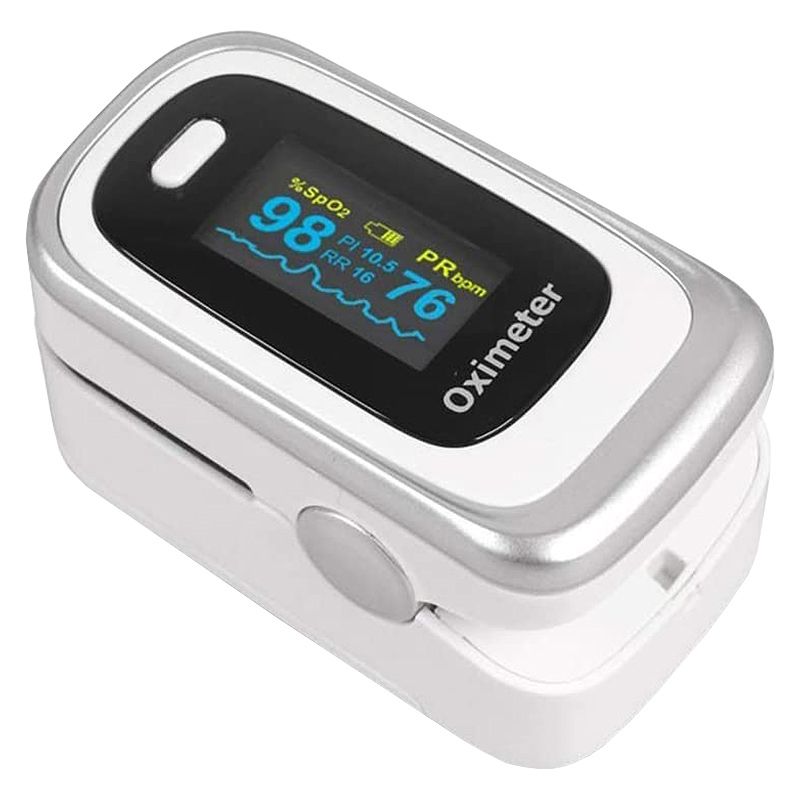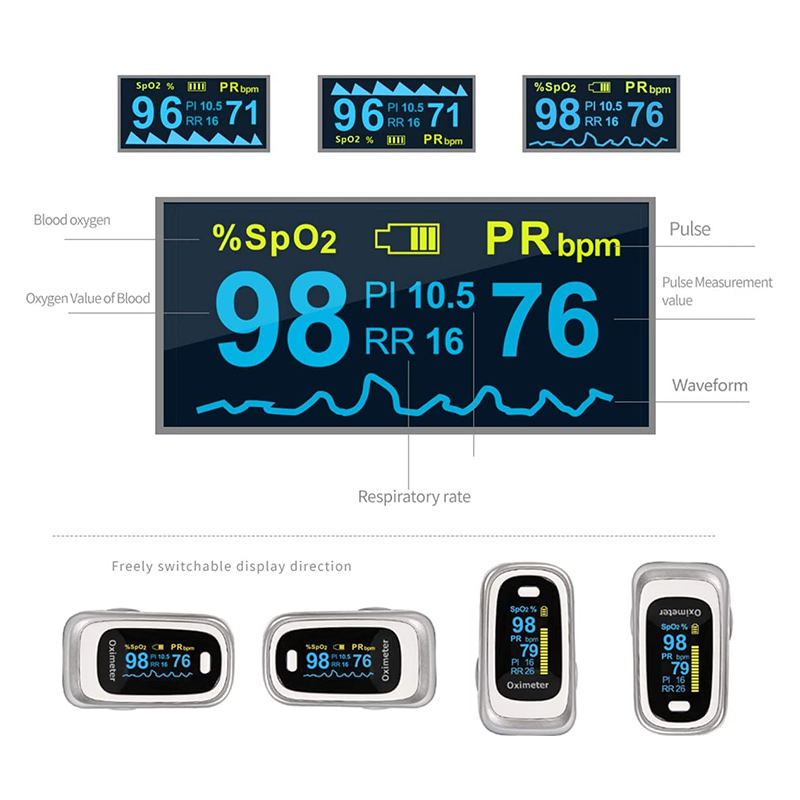
A recent BBC News article has drawn attention to an NHS strategy in which pulse oximeters are being distributed to high-risk COVID-19 patients in order to monitor their progress at home. These £20 instruments provide an easy method of monitoring oxygen levels, allowing patients and doctors to identify silent hypoxia sooner and take action before situations become critical. Dr Matt Inada-Kim, ‘the doctor leading the [Covid Oximetry@home] scheme thinks everyone should consider buying one’.[1]
Silent hypoxia is a condition where oxygen levels in the blood drop to alarming levels without the patient noticing. A healthy individual usually has a blood-oxygen level of 95-100%. However, as Dr Inada-Kim explains, COVID patients are being admitted ‘with oxygen levels in the 70s or low-or-middle 80s’.[2] Pulse oximeters offer an easy and effective way of monitoring COVID patients for silent hypoxia as they measure oxygen levels in the blood. These simple gadgets slip over the patient’s finger, shine a light into the body, and calculate oxygen levels based on how much light is absorbed.[3]
Dr Inada-Kim notes that currently there isn’t conclusive proof that oximeters save lives; although, early signs are positive. The scheme has been expanded and, so far, approximately 300 000 pulse oximeters have been administered to high-risk COVID patients.[4] For further information, please read the full BBC News article here.
The TestSafe TS-OXI01 Fingertip Pulse Oximeter can be used to measure blood-oxygen levels, PI (perfusion index), respiratory frequency, and pulse rate. Data is displayed on the easy-to-read, 0.96-inch, OLED display. PASS is offering a £5 discount on the TestSafe TS-OXI01 Fingertip Pulse Oximeter; please enter the discount code, OXIM5, at the checkout.
For further information, contact our sales team on 01642 931 329 or via our online form.
For PPE, hand sanitiser, IR thermometers and temperature-screening thermal cameras, please see our COVID-19 section.
[1] James Gallagher, ‘Covid: How a £20 gadget could save lives’, BBC News, last accessed 22 January 2021 < https://www.bbc.co.uk/news/health-55733527>
[2] Gallagher
[3] Gallagher
[4] Gallagher




